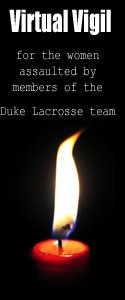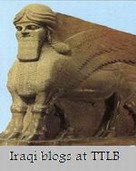Guest Editorial
The Dearborn Press & Guide
Sunday, August 13, 2006
by Nabeel Abraham
I read with interest your news story, “American Jews feel despair over conflict, demonstrations,” (August 9, 2006, p.1 SEE BELOW)). The story centers on Ms. Sharona Shapiro’s criticism of Arab American community leaders after she attended a Dearborn demonstration protesting Israel’s aggression against Lebanon on July 18.
The story leaves the impression that the war between Israel and Hizbollah and by extension between Israel and the Arab world is senseless and meaningless. If there is any sense to it, it is that Israel, minding its own business, was the target of an unprovoked attack. That’s pretty much how the conflict is portrayed in the major news media as well.
This tidy little picture, however, leaves many loose ends, like the appearance of several Jewish speakers at the Arab American rally who are critical of Israel, the large turnout of 10,000 demonstrators (one tenth of Dearborn’s population), and the equating of Israel with Nazi Germany.
It is convenient to overlook or dismiss these things as Ms. Shapiro does and thereby avoid asking pertinent questions such as: What are Jewish (and Israeli) critics of Israel saying? Why are so many local Arabs upset? Why are many people, Arab and non-Arab, including some prominent Israeli Jews, equating Israel’s behavior toward the Palestinians, Lebanese and other Arabs with those of Nazi Germany, the bench mark against which people today measure the conduct of governments around the world? Why is Israel (and Washington) the object of scorn in the Middle East and beyond? Let’s examine these issues in turn.
Although no local Arabs were interviewed in the news story for their take on Ms. Shapiro’s comments, one can imagine their reactions. Many Dearborn Arabs hail from areas demolished by Israel’s military aggression. Many, in fact, were trapped in Lebanon while on summer vacation and witnessed Israel’s indiscriminate shelling of their villages, towns and cities. Some were injured. Others lost family and friends to the bombardment.
Ms. Shapiro despairs that Arabs will not reach out to local Jews like herself, but she can only talk about her own family and friends living in Israel. She passes over the fact that Israel’s powerful war machine has so far left around 1,000 people dead (including four unarmed UN peace keepers) and countless others maimed, the vast majority civilians, with children and the elderly bearing the brunt of the attack. In contrast, Israel’s overall casualty toll is one-tenth that of Lebanon’s, the majority being military casualties.
If Ms. Shapiro would like to understand why people equate Israel’s actions with Nazi Germany’s she should reach out to Israel’s victims, hear their stories, learn about their individual and collective mini-9/11's, where whole apartment buildings and shelters are brought down on their occupants. Or, listen to the stories of relatives heeding Israel’s warnings to evacuate southern Lebanon who are burned beyond recognition in their cars, casualties of Israel’s deliberate targeting of roads, bridges, airports and other escape routes.
Ms. Shapiro feels insulted that Arab community leaders invited two anti-Zionist Jews to address the July 18 rally. It seems that she would prefer that Americans hear only one voice from American Jews, namely hers and those who support Israel blindly. She is not alone. One has to turn to the alternative press to discover that leading intellectuals and writers, many Jewish, issued an open letter blaming Israel for escalating the conflict in the Middle East as part and parcel of a sinister policy of eliminating the Palestinian nation, the real crux of the Middle East conflict. Among the letter’s signatories are Nobel Prize winner, Harold Pinter, Nobel Prize laureate Jose’ Saramago, American authors Russell Banks and Gore Vidal, and world famous linguist and philosopher Noam Chomsky.
What critics of Israel see is an Israel founded fifty years ago at the expense of several million Palestinian Arabs, who were ethnically cleansed from their country to make way for the Jewish state. This crime plunged the Middle East into a bloody conflict from which it has been unable to emerge, but not for the lack of trying. Thanks to the rejectionism of Israel and Washington, repeated attempts to resolve the conflict peacefully have reached deadends, just as the current attempt to bring about a cease-fire has met the same fate.
Over the past half century, Israel has used its superior military power to repeatedly bully, punch and kick Lebanon and other neighboring states. It has invaded Lebanon at least three times, 1978, 1982, 1996, each time turning half-a-million people into refugees in their own country, killing and maiming tens of thousands along the way. Israel occupied southern Lebanon for 18 years, killing and torturing anyone who opposed the occupation and the theft of Lebanon’s scarce water resources. Even after it pulled out of most of Lebanon in 2000, Israel continued to kidnaped Lebanese and Palestinian residents of Lebanon, including fishermen fishing along the coast of the country, assassinating its political leaders, and meddling in its delicate politics. Israeli ground forces frequently crossed into Lebanon and its military aircraft routinely invaded Lebanese airspace, disturbing the peace and tranquility of the country with sonic booms right up to the latest flare up.
If George Bush can declare a worldwide War on Terror, it stands to reason that Lebanese leaders can declare a War on Israeli Terror, hence the phenomenon of Hizbollah.
If supporters of Israel like Ms. Shapiro want to reach out to the Arab American community shouldn’t they start by asking joining Arab community leaders in calling for an immediate cease-fire?
XXXXXXXXXXXXXXXXXXXXX
American Jews feel despair over conflict, demonstrations
By Cristen Kis, Press & Guide Newspapers
PUBLISHED: August 9, 2006
DEARBORN
Advertisement
While the conflict in the Middle East rages on, the local impact has been undeniable. Members of the Arabic and Muslim communities have staged rallies and protests, which has left some metro area residents feeling troubled.
Sharona Shapiro is the Michigan Area Director of the American Jewish Committee. She attended a march and rally in Dearborn on July 18 and points out that this war affects everyone. She has family and friends in Israel who she speaks to daily. She said they are among those in the front lines of the Hezbollah attacks, adding that it's hard-pressed for them to not be in a country the size of New Jersey.
Shapiro said she walked with the masses last month - estimated at 10,000 protesters - from Warren Avenue and Oakman to Hemlock Park, where she listened to speeches from several Arab-American community leaders.
"I walked away feeling great despair," she said.
Shapiro said she felt as though, "The leadership of the Arab-American community was doing a disservice to their own community and the general metropolitan Detroit area."
She said her feelings were based upon the rhetoric used at the rally as well as the strong language displayed on the signs.
One of the signs Shapiro saw read, "Israel Nazi Are the Same Thing." She said she also saw signs displaying Nazi symbols and signs equating President George W. Bush to Adolf Hitler.
Shapiro said she found it insulting that the organizers of the rally brought in two people from an anti-Zionist group to represent the Jewish community. Rabbi Yisroel Dovid Weiss, a spokesperson for Neturei Karta International-Jews against Zionism was one of the attendees. He also attended a press briefing at the Lebanese American Heritage Club that week wearing an Israeli flag with a slash through it.
Shapiro decided to attend the rally as part of her ongoing work to promote relationships between different religious groups.
"I felt it was important for me to attend to hear the voices on the ground. Especially following the outbreak of this horrific war," she said.
However, Shapiro said she is saddened by the inability of Arabic community leaders to make a strong distinction between Hezbollah and the Lebanese community. Shapiro said she thinks the Arabic community should be doing all they can to build up the Lebanese government because, as she points out, Hezbollah does not just call for "death to Israel," but also for "death to America."
Shapiro said she has spoken to several Arabic and Muslim community leaders and that some have reached out to express their sadness and despair about the conflict.
"But we recognize that we're coming from two different perspectives," she said.
While the Arabic community has demanded a cease-fire, Shapiro believes Israel has a right to defend itself and to also "protect Jewish people around the world."
Shapiro believes the Middle East conflict with have a lasting impact locally, which deeply saddens her.
She said there is a whole new generation of Arab-Americans who don't know Jews as friends, fellow citizens or neighbors because their views have been shaped by leaders at rallies.
But Shapiro said, "I'm hopeful that there will be individuals in the (Arabic) community who will rise up and say that it's important to reach out to our neighbors, coworkers and fellow citizens to work together to retain relationships."
Ronald Stockton, a political science professor at the University of Michigan-Dearborn also believes that the Middle East conflict will have "a long-term disastrous impact." He points out that Lebanon as a whole has already been damaged and its infrastructure destroyed.
Stockton said he thinks the war has caused permanent damage to the civil relationship between Arabs and Jews because of the strong rhetoric being used and polarized thinking. He said both sides are using dehumanizing words such as "evil" and "Nazis."
He explained that the war in the Middle East is what political scientists call, "asymmetrical warfare" because one side is using heavy weaponry and bombardment while the other side is using smaller weapons and stealth maneuvering.
"I don't see how any good at all will come from this," Stockton said.
But he believes the dynamic of the local Arab-American community is healthy. "They feel confident enough to march and speak out," he said.
Two of Stockton's colleagues at U of M-Dearborn also offered their views on the Middle East crisis:
"It is with sadness that I observe the Israelis bombing Lebanon with such force. Yet, I believe there was and is little choice, given that Israel's sovereign territory was violated, Jews killed and kidnapped, leaving Israel with little choice," said Sidney Bolkosky, a history professor at U of M-Dearborn and a Holocaust scholar. "I also think Hezbollah is taking full advantage of the murder of civilians, virtually goading Israel into their murderous actions. If Israel seems to be overreacting, it derives from a long history of this provocation."
"If another country were to send a rocket into the U.S.A., would the government not react?" Bolkosky asked. "There seem to be no voices of moderation on either side - a sign of the depth of feeling and the tragic nature of the situation. There are no winners here; it's too late for that."
Elias Baumgarten, an associate professor of philosophy at U of M-Dearborn and a member of the Jewish Peace Lobby said, "Israel has a right to defend itself but that even in a just cause a country has a moral obligation to protect innocent civilians from harm," he said. "It is not enough not to intend to cause harm to civilians. A country must take risks upon its own soldiers to protect innocent civilians. Bombing from the air inherently poses greater risks to civilians."
"Although no one has access to exact facts, all reports suggest that Israel's response, including the destruction of so much of the Lebanese infrastructure, has been disproportionate and in violation of accepted rules of war, " Baumgarten said.








.jpg)








 -->
-->